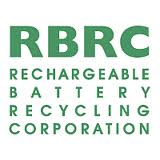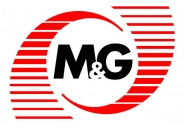Introduction
The Rechargeable Battery Recycling Corporation (RBRC) (now known as Call2Recycle) is a large Atlanta-based trade association which represents the manufacturers of portable rechargeable batteries. The batteries are used in a wide variety of applications, including laptop computers, cordless power tools, cordless telephones, etc. Members of RBRC include such companies as Panasonic, Sony, Varta and others. Batteries manufactured by these companies are used in such applications as laptop computers, cordless power tools, cordless telephones, etc.
RBRC’s primary mission is to facilitate the collection and recycling of portable rechargeable batteries. Since its inception, RBRC-sponsored recycling programs have been responsible for the processing of 75 million pounds of batteries which would have otherwise wound up in landfills. RBRC’s territory includes the United States and Canada.
RBRC has established over 50,000 innovative consumer collection points for batteries at leading retailers, including Best Buy, Office Depot, Office Max, Sears, Zellers and many others. RBRC supports its program with an extensive advertising program. In addition to the retail consumer collection points, RBRC also interfaces with municipal recycling programs, such as curbside collection and drop-off collection programs.
RBRC has also developed partnerships with many of the consumer products companies (such as Black and Decker, Motorola, etc.) which help to support the organization’s goals.
Project Scope
Like many entities, RBRC periodically examines the overall status of the organization and its programs. RBRC decided that it wanted to conduct an in-depth strategic assessment in order to ascertain how its members, senior staff and principal customers view the organization – in terms of its strengths and weaknesses. RBRC also wanted to examine its current mission and vision statements to confirm that both continue to adequately serve the organization. Finally, based upon the findings of the assessment, RBRC also wanted to establish new strategic goals for the purpose of guiding the organization going forward for a period of at least five years.
RBRC retained L.B. Schmidt & Associates, LLC to carry out this project, which included the following components:
- Organizational Profile (structure, finances, internal/external messaging, etc.)
- Key Stakeholder Interviews (which included Board members, corporate licensee partners, retail partners, state and municipal recycling officials and senior staff)
- Compilation of Organization Strategic Assessment
- Leadership Retreat
- Final Report
Project Results
During the Key Stakeholder Interview phase, Luke Schmidt interviewed 21 key stakeholders. The interviews included the completion of an extensive survey document prior to the interview. The survey document covered a wide variety of issues/topics relative to the Stakeholder and to RBRC.
 The interviews were conducted in-person on a strictly confidential basis in locations throughout the United States and Canada. In order to assure an accurate reflection of attitudes on various issues, each Stakeholder was given an assurance of complete confidentiality with regard to his/her responses. (The intent here is to obtain a fully candid response from each Stakeholder as to how they perceive various issues away from a typical group setting in which many individuals are somewhat reluctant to express how they truly feel on various issues)
The interviews were conducted in-person on a strictly confidential basis in locations throughout the United States and Canada. In order to assure an accurate reflection of attitudes on various issues, each Stakeholder was given an assurance of complete confidentiality with regard to his/her responses. (The intent here is to obtain a fully candid response from each Stakeholder as to how they perceive various issues away from a typical group setting in which many individuals are somewhat reluctant to express how they truly feel on various issues)
Following the completion of the interviews, Luke Schmidt compiled the responses in aggregate form (again, no individual responses were ever shared with anyone at RBRC – either in written, verbal or PowerPoint form). The responses were compiled in a strategic assessment document and presented to attendees at the Leadership Retreat.
During the Leadership Retreat, which was held on Maryland’s Eastern Shore, several Key Issues were identified. These served as the basis for all subsequent discussion. The organization’s Mission Statement and Vision Statement were examined as to their current applicability and both were revised. The attendees also developed 19 short-term goals (to be completed over the next 12 months) and 17 long-term goals (to be completed over the next five years).
Also during the Leadership Retreat, the participants developed strategies (in outline form with personnel assigned to each) for the purpose of implementing the various goals.
Finally, following the Leadership Retreat, Luke Schmidt compiled a Final Report which served as a summary of the action taken during the Leadership Retreat.
###



